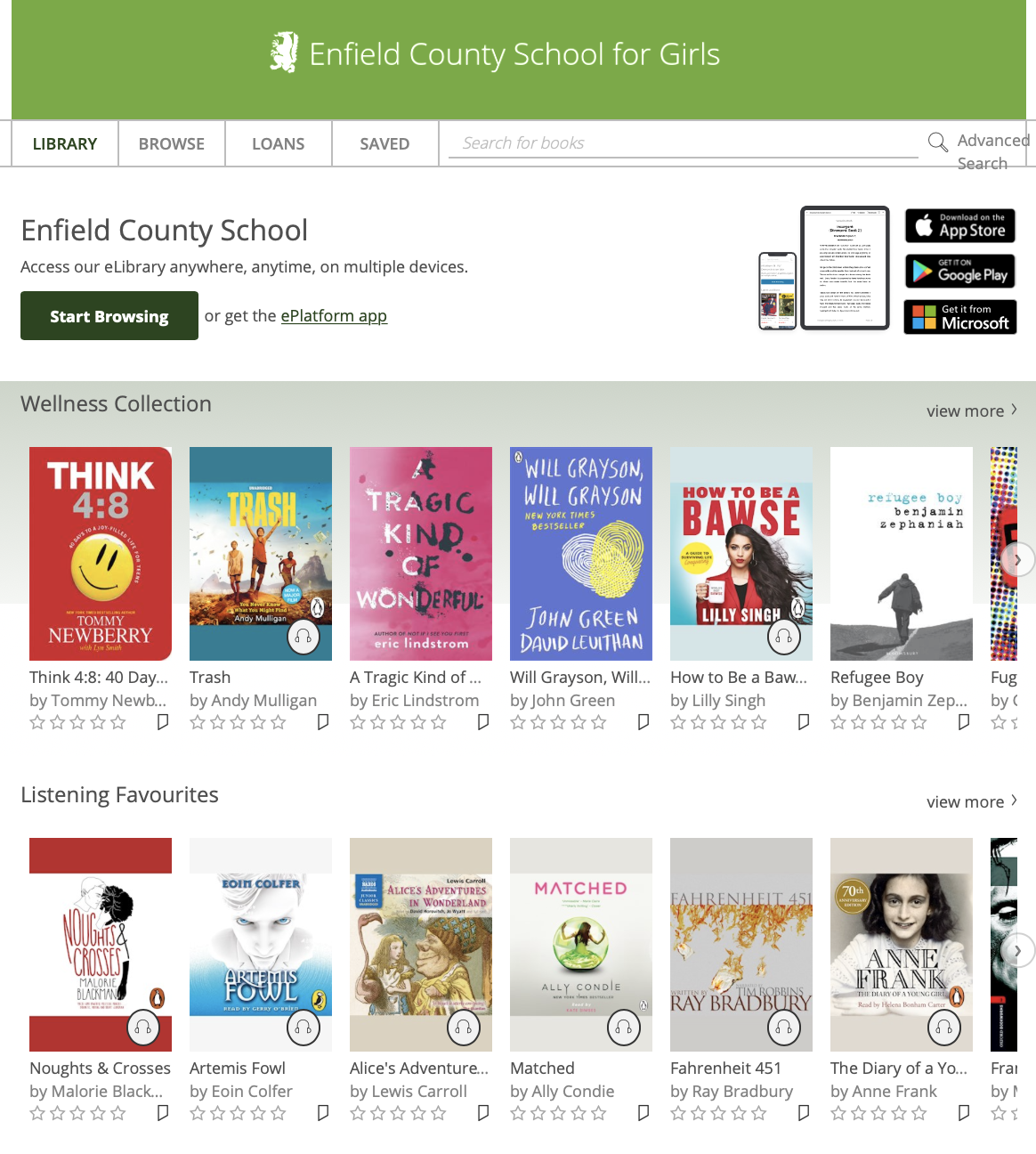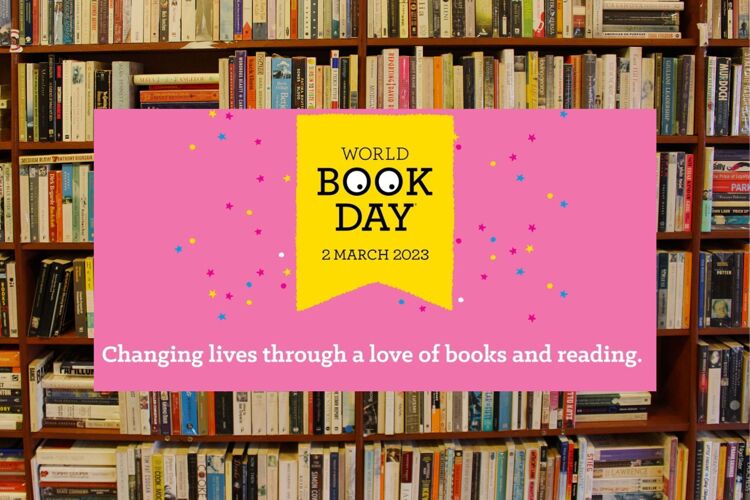Promoting a Reading Culture
Join us in celebrating the joy of reading
Please visit worldbookday.com for reading competitions, activities, book lists, free audio books and a range of ideas and events to help foster a love of literature.
Click here for a link to our Curriculum Provision page: our English page has more information about the importance of reading including KS3 reading lists
eReading Platform for All Students:
Click on the image below for the link to our Reading For Pleasure platform. Login details for all students are in your Year Team. Contact ecsgeneral@enfieldcs.enfield.sch.uk with any issues. 
Within English Lessons:
- Our curriculum ensures that all texts and genres are taught in every year. Pupils will be exposed to a wide range of fiction texts (prose, poetry and drama) as well as non-fiction texts too.
- Through our choice of texts we aim to introduce students to diverse voices and themes e.g. The Female Voice introduces students to different female authors and protagonists, non-fiction units include topics such as The News or Perceptions of Youth.
- Interweaved into all our schemes of learning are opportunities to hone skills in both reading, writing and oracy e.g. DART activities – cloze reading, predicting, sequencing, chunking texts.
Reading Lessons at KS3:
- In fortnightly reading lessons opportunities are provided for independent reading time and discussions about texts read. This is supplemented with activities to support and develop key literacy skills e.g. reading comprehension, explicit teaching of vocabulary.
- Updated reading curriculum. In Years 8 and 9 lessons are based around wider topical themes and issues to engage students with the world around them e.g. Black History Month, LGBTQ+, Remembrance, the environment, mental health. Students are given relevant reading material on these topics and respond to them either analytically or creatively.
- In Year 7, students work from a booklet covering a range of fiction and non-fiction extracts and tasks to build reading and writing skills developed at KS2, aiming to expose students to a variety of texts.
- Within these lessons students are asked to log their reading and have the chance to talk about their reading experiences with peers. Suggested and recommended reads are shared with classes to both promote a love of reading and to stretch and challenge key students.
Project running for post-16 students to plan and deliver reading lesson content around the theme of remembrance to students in the second half of the autumn term.
Whole School Reading:
Reading is part of the weekly tutor time programme at KS3. Students have the opportunity to independently read during Friday tutor time, share and discuss reading.
Literacy calendar used to promote national days including World Book Day, National Poetry Day, International Women’s Day. Promoted in reading lessons, assemblies, through MS Teams announcements and whole school bulletin. Linked reading lists and recommendations shared across the school.
Use of library at RA and Reading Room at HW alongside updated post-16 study centre. Post 16 prefects to play an active role in managing use of Reading Room at HW. Use of these areas promoted in assemblies, form time and through MS Team announcements
Recommended reading lists for year groups on the school website for both parents and students to access.
Lunchtime Reads – non-fiction/fiction laminated extracts out in the dining rooms at both sites for students to read during lunch break.
Displays showcasing staff reading recommendations and vocabulary e.g. Black British Brilliance display at HW and reading/vocabulary display outside library at RA
Extracurricular opportunities for students in creative writing, debating and whole school diversity reading groups at KS3, KS4 and KS5. Opportunities for cross-curricular links.
Writing competitions run throughout the year which may include Young Writers, 500 words and around key events e.g. World Book Day and National Poetry Day.
Young Marie Curies Science Journal including articles, staff Q+A, scientists in the spotlight feature and career links. Edited, researched, and written by post-16 science students
Literacy Across the Curriculum:
NPQSL Extended Rosenshine Literacy Project to develop academic reading and build confidence and fluency in reading at KS4. 16 subject areas involved, planning and delivering academic reading activities in lessons. Reading strategies shared to staff involved in the project. Plans to embed this in curriculum areas beyond project.
Range of literacy strategies used across curriculum areas e.g. guided reading, pre, during and post reading strategies (predicting, questioning, summarising), explicit teaching of vocabulary (etymology, application) , speaking/writing frames, SPAG starters
T&L Spotlight strategies e.g. Promotion of oracy through The Power of Talk video speak like a geographer
Literacy marking codes within Assessment and Feedback Policy used across curriculum areas when providing feedback to students. Codes used to highlight where pupils can improve on both the literacy and quality of language that they have used in their work.
Interventions and Further Support:
Use of Lexia Programme and 1:1 Catch up Literacy intervention to target identified students and provide further level of support. Use of Suffolk Reading test to measure student reading age at the start/end of the year.
Literacy Academic Support (DfE Funded School Led Tutoring) delivered to support identified students in literacy. Initially working with Year 8 students in Autumn term. To be extended to Year 7 and 9 later in the academic year.

